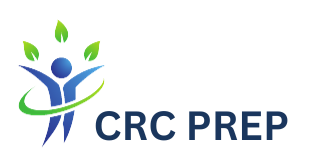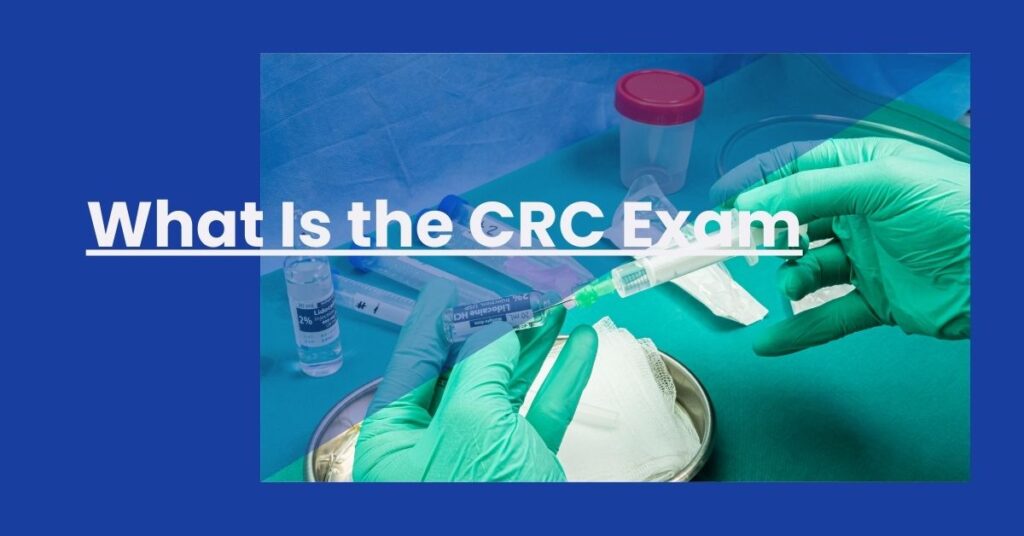The CRC Exam is a critical certification test for professionals in the rehabilitation counseling field, assessing their ability to support individuals with disabilities effectively. Certified Rehabilitation Counselor (CRC) credentials are earned by passing this exam, which reflects a standard of excellence and a commitment to ethical practices.
Key insights into the exam:
- Eligibility: Master’s degree in a relevant field plus clinical experience.
- Structure: A mix of rehabilitation and disability, and counseling topics.
- Preparation: Study guides, practice tests, and review of core content areas.
If you’re aiming to enhance your career in rehabilitation counseling, mastering the CRC Exam is your next pivotal step.
- Introduction
- Understanding the CRC Exam
- Who is Eligible for the CRC Exam?
- Exam Format and Content Overview
- The CRC Exam Registration Process
- What to Expect on the Day of the Exam
- Scoring the CRC Exam: How it Works
- Preparing for Success on the CRC Exam
- Frequently Asked Questions (FAQs) About the CRC Exam
- Conclusion
Introduction
Have you ever considered a fulfilling career helping others overcome life’s challenges? If the answer is a resounding “yes,” then becoming a Certified Rehabilitation Counselor (CRC) might be in your future. The bridge to this impactful profession passes through the CRC exam—a comprehensive test that cements one’s expertise in working with individuals with disabilities. This exam verifies that you have the knowledge and skills to provide quality rehabilitation services and is a key milestone in your journey towards certification. Let’s dive into what the CRC exam entails and explore how you can navigate the path to becoming a certified expert in rehabilitation counseling.
Understanding the CRC Exam
You might be asking yourself, “Why is this exam so important?” Well, the CRC exam acts as a seal of approval indicating that you possess a robust foundation of knowledge essential for serving individuals with disabilities effectively. This rigorous test is administered by the Commission on Rehabilitation Counselor Certification (CRCC), a reputable organization dedicated to setting the standard for quality rehabilitation counseling services.
The CRC certification is nationally recognized and widely respected in the profession. It encompasses a vast breadth of expertise, from understanding disability and its impact on individuals and their environments to the application of counseling techniques that empower clients to achieve their personal and employment goals. By successfully passing this exam, you signal to employers, colleagues, and clients that you’re committed to excellence in your practice.
This examination evaluates your expertise across 12 key domains identified by the CRCC Job Task Analysis Blueprint, such as medical, psychological, and career aspects of disability management. This blueprint ensures that the content of the exam remains relevant and that you as a professional stay on top of emerging trends and practices in the field. To truly appreciate the significance of the CRC exam, it helps to immerse yourself in these domains and grasp the integral part they play in the rehabilitation process.
Who is Eligible for the CRC Exam?
Eligibility for the CRC exam is not all-inclusive, as meeting the standards is pivotal. To sit for the exam, you must have completed a master’s level degree in Rehabilitation Counseling or Clinical Rehabilitation Counseling from a Council on Rehabilitation Education (CORE) or Council for Accreditation of Counseling and Related Educational Programs (CACREP) accredited program. Additionally, you’re required to have clocked in a minimum of a 600-hour internship experience, giving you practical exposure to the principles you’ve learned.
The eligibility criteria ensure that counselors have both the academic knowledge and hands-on experience needed to provide comprehensive, ethical, and effective rehabilitation services to those in need. If you’ve met these benchmarks, you’re well on your way to demonstrating your aptitude in this specialized area of counseling. And, if you’re curious or uncertain about your current standing, check the detailed eligibility requirements provided by the CRCC for a clear pathway to your professional advancement.
Exam Format and Content Overview
Are you wondering what the actual test is like? The CRC exam is methodically structured to thoroughly assess your competence. It consists of 175 multiple-choice questions, which are formulated based on the knowledge domains that underpin the practice of rehabilitation counseling. The allotted time for completion is 3.5 hours—ample enough to tackle questions that span the diverse spectrum of your training.
Here’s a glimpse into the kind of subjects you can expect on the exam:
- Assessment and Appraisal
- Career Development
- Job Placement
- Case Management and Counseling
- Psychosocial and Medical Aspects
- Disability Management
- Research and Program Evaluation
This multidimensional format is designed to tap into your analytical and critical-thinking abilities. Approaching the material broadly is advised, but it is equally important to give each domain the attention it deserves. A strategic study plan that delves deep into every category will serve you best on exam day. For a comprehensive outline of the CRC exam’s content and structure, the CRCC website offers valuable insights.
The CRC Exam Registration Process
Registering for the CRC exam requires a clear understanding of deadlines, fees, and the steps involved. Key to a smooth registration process is adhering to the registration periods. The CRCC website will guide you through the specifics, but it’s crucial to stay ahead of cutoff dates and the accompanying fees. As of my knowledge cutoff in early 2023, the standard registration fee is $410, but it’s wise to verify the current fee as it could change.
Here’s how you can navigate the registration process:
- Confirm your eligibility status.
- Create an account on the CRCC website.
- Follow the prompted steps, providing necessary documentation.
- Pay the registration fee and select your exam window.
Effective preparation is paramount. Utilize study guides, take practice exams, and engage in review courses if needed. When you feel confident and ready, take a moment to review your application before submission, ensuring every detail is in place. Remember, meticulous preparation and attention to detail now translates to a smoother experience leading up to the exam day. Now that you have a clearer understanding of what the CRC exam is and how to set yourself up for registration success, it’s time to focus on what to expect when the big day arrives.
What to Expect on the Day of the Exam
Your preparation has led you to this moment—the day of the CRC exam. It’s natural to feel a mix of excitement and nerves, but knowing what to expect can make all the difference. Here’s a walkthrough of what your test day might look like:
- Arrival: Plan to arrive early, giving yourself plenty of buffer time for any unexpected delays. This will help you stay calm and grounded.
- Identification: Make sure to bring acceptable forms of ID as outlined by the CRCC. This might include a current driver’s license, passport, or other government-issued identification.
- Security Procedures: Expect to go through security protocols similar to what you’d encounter at an airport. Personal belongings might be stored away during the exam, to maintain the integrity of the testing environment.
- Testing Environment: You’ll be assigned to a computer in a controlled, proctored setting. Your workspace will be clutter-free, with minimal distractions allowing you to focus on the task at hand.
Being accustomed to the rules and regulations can provide peace of mind. Familiarize yourself beforehand with all the dos and don’ts by reviewing the guidelines provided on the CRCC website. This ensures you can navigate the exam day smoothly and put all your energy into delivering your best performance.
Scoring the CRC Exam: How it Works
As you complete the exam, it’s only natural to wonder about your results. Understanding the scoring process can help ease any post-exam anxiety. The CRC exam uses a criterion-referenced scoring system, which means your performance is measured against a pre-determined standard of knowledge rather than against other test-takers.
Here’s what happens after you’ve submitted your answers:
- Preliminary Results: Right after finishing, you’ll receive a preliminary report indicating your pass/fail status.
- Official Scores: Your official results will be sent to you approximately four weeks later, detailing your performance in the various knowledge domains.
- Retake Policy: If needed, there is an option to retake the exam in a subsequent testing window. It’s crucial to view this not as a setback but as an additional opportunity to demonstrate your knowledge and skill.
Awaiting results can be the most challenging part, but rest assured that if you’ve prepared diligently, your efforts should reflect in your scores. You can learn more about scoring and results by visiting the CRCC’s examination page.
Preparing for Success on the CRC Exam
Let’s shift focus to arguably the most crucial aspect—preparation. A well-structured study plan that caters to your learning style is essential. Whether you prefer self-study or a group setting, numerous resources are at your disposal:
- Study Guides: Comprehensive study guides are specifically designed to help you navigate through the exam content.
- Practice Exams: Taking practice exams not only tests your knowledge but also helps you get comfortable with the format of the CRC exam—and remember, practice makes perfect!
- Review Courses: Sometimes, a structured course is what you need to cover all bases. Look for reputable ones that have a track record of success.
And here’s a motivational tidbit: the challenge of preparing for the CRC exam is also an opportunity for professional growth. With each practice question and review session, you deepen your understanding of what it means to be a rehabilitation counselor. So even before you’ve earned the title, you’re contributing to your development in the field. Explore further preparation advice and resources at Mometrix Academy.
Frequently Asked Questions (FAQs) About the CRC Exam
Now, let’s tackle some common questions that can arise when someone asks, “What is the CRC exam?”
- Is work experience required to take the CRC exam? Yes, candidates must have completed a supervised internship as part of their educational program.
- Can I use notes or reference materials during the exam? No, the CRC exam is closed book, and no outside materials or notes are allowed.
- How often can I retake the exam if I don’t pass? You can retake the exam, although restrictions on frequency apply. Be sure to consult the CRCC guidelines for specific details.
- Are accommodations available for test-takers with disabilities? Yes, accommodations can be made with advance notice and appropriate documentation.
Remember, this is just a snapshot of what candidates frequently wonder about. Your unique questions deserve attention, and the CRC’s official resources are equipped to offer comprehensive answers.
Conclusion
The journey to becoming a Certified Rehabilitation Counselor is both challenging and rewarding, culminating in the CRC exam—a step that recognizes your proficiency and dedication to serving individuals with disabilities. By now, you should have a richer understanding of “what is the CRC exam” and the breadth of your potential role as a CRC.
With thorough preparation, an understanding of the exam’s structure and content, and an insight into what to expect on the big day, you’re well-equipped to not only tackle the CRC exam but to excel in it. Embrace this process as more than a test; see it as an investment in your future as an embodiment of the principles and practices that make rehabilitation counseling such a critical and life-changing field.
Remember, your path doesn’t end with the exam—it only begins there. As a CRC, you’ll have the tools, knowledge, and credentials to make a significant impact on the lives you touch, and that, in itself, is a remarkable achievement.
What is the CRC Exam? Uncover essential details about the Certified Rehabilitation Counselor Examination, its purpose, and its significance.

